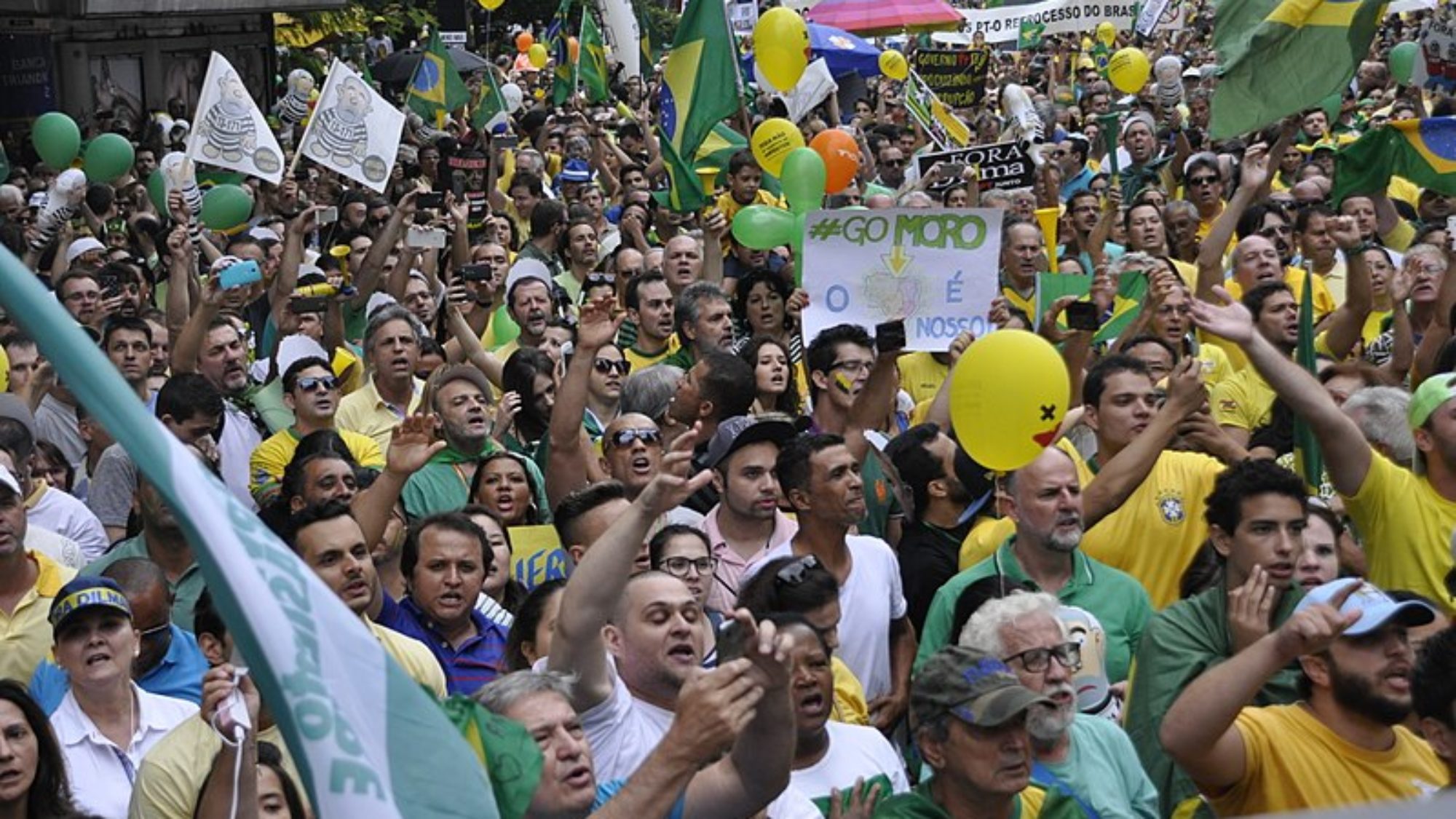
Title: To Impeach or Not to Impeach: Lessons from Latin America
The recent House resolution that introduced the rules for the impeachment inquiry of President Donald Trump formalized the fourth U.S. Congress attempt to remove a sitting president. The House of Representatives impeached Presidents Andrew Johnson and Bill Clinton, both of whom were acquitted by the Senate. Richard Nixon resigned before Congress could remove him. Despite the notoriety of these cases in U.S. presidential history, Congress has not actually removed any president. How can we anticipate the consequences of something that has not yet occurred? The removal of presidents in Latin America, a region that represents almost 40 percent of the world’s presidential systems, can shed light on the consequences of impeachment processes.
Since 1978, congresses from six of the nineteen Latin American countries have removed ten presidents through impeachments or declarations of incapacity (or the leaders have resigned to avoid those processes). These events have taken place in Brazil (Fernando Collor de Mello, 1992; Dilma Rousseff, 2016), Venezuela (Carlos Andrés Pérez, 1993), Ecuador (Abdalá Bucaram, 1997; Lucio Gutiérrez, 2005), Paraguay (Raúl Cubas Grau, 1999; Fernando Lugo, 2012), Peru (Alberto Fujimori, 2000; Pedro Pablo Kuczynski, 2018), and Guatemala (Otto Pérez Molina, 2015).
I argue that impeachments are an extreme yet beneficial democratic institution for presidential democracies. Before presenting this argument, though, it is helpful to explore some cases that illustrate their advantages and disadvantages.
Positive Outcomes
Impeachments are constitutional devices created to remove presidents who abuse their powers, and to inhibit would-be abusers. While we cannot know which or how many abusive acts have been prevented by the existence of impeachment procedures, there are clear cases in which congresses have protected democratic norms and institutions—or stopped authoritarian regressions—by removing presidents.
On September 2, 2015, Guatemalan President Otto Pérez Molina resigned under threat of impeachment one day after Congress unanimously decided to remove his prosecutorial immunity. A retired military officer and former Director of Military Intelligence, Pérez Molina was besieged by mass street protests and an official investigation due to his alleged participation in a corruption scheme that involved receiving bribes from businesses to evade customs duties. Pérez Molina was arrested soon after resigning and is still awaiting trial in prison. His removal has been widely regarded as a major democratic feat in a country with feeble democratic roots and a tradition of instability—Guatemala formally put an end to a thirty-six-year-long civil war as recently as 1996.
In a more dramatic case, President Alberto Fujimori’s defenestration led to the recovery of Peruvian democracy. On April 5, 1992, Fujimori led a self-coup (autogolpe) with the help of the military, after which he shut down the legislature, purged the judiciary, and suspended the constitution. He effectively turned a democracy into a semi-democratic regime. In May 2000, Fujimori won a third term in elections widely considered to be fraudulent. Nevertheless, the discovery of a massive corruption scandal headed by Fujimori spurred his escape to Japan, from where he tried to resign his presidency via fax on November 17, 2000. Congress rejected his resignation and impeached him for being “morally unfit” four days later.
Negative Outcomes
In some cases, opposition parties that control the legislature have used impeachments to remove unpopular presidents simply because they can. Peruvian President Pedro Pablo Kuczynski resigned in March of 2018 in anticipation of his inevitable impeachment. His fall was fast. In December 2017, the Peruvian Congress started an impeachment proceeding accusing him of lacking “moral capacity” because his consulting firm received fees from the scandal-hit Brazilian construction company Odebrecht while he was minister from 2004-2005. Although no irregularity was proven, his reputation was damaged. Kuczynski was desperate: his party, Peruvians for Change, only controlled 11 percent of the seats in the unicameral Congress. Kuczynski persuaded thirteen opposition legislators, led by Kenji Fujimori—son of the aforementioned President Alberto Fujimori—to abstain from the first impeachment voting. The price was high: three days after surviving the impeachment voting, Kuczynski pardoned Alberto Fujimori, who had been in prison since 2009 for corruption and human rights abuses. Kuczynski gained some time, but not much. In March 2018, Keiko, sister of Kenji, released a tape that showed opposition legislators led by Kenji trying to convince a fellow legislator to endorse Kuczynski in exchange for privileged access to governmental resources. This scandalous revelation prompted Kuczynski’s resignation.
On August 31, 2016, the Brazilian Congress impeached President Dilma Rousseff simply because her rivals had the power to do so. Although Rousseff had been re-elected in 2014, her popularity sharply declined due to corruption scandals that affected the entire political elite, and due to her decision to face the economic crisis with an aggressive fiscal adjustment. The opposition wanted to reverse Rousseff’s policies and seized the opportunity to do so by impeaching her, primarily due to a budget technicality.
A second negative outcome is that the ousting of presidents can be followed by years of political instability. For example, in 1993, the Venezuelan Congress removed President Carlos Andrés Pérez after he was connected to a financial fraud. Before that, his government faced waves of violent riots and two military coup attempts due to his decision to adopt harsh economic adjustment policies. Removing Pérez, however, did not bring enduring political stability. The subsequent elected president, Rafael Caldera, would face a severe banking crisis and high inflation, and was succeeded in 1999 by an outsider with authoritarian impulses: Hugo Chávez. This former lieutenant colonel started the Chavista era that would turn the once-prosperous democracy into a dictatorship, which is today experiencing an economic and humanitarian crisis. Similarly, the congressional ousting of Ecuadorian President Abdalá Bucaram in 1997 was expected to end the almost six months of errant behavior in office of the populist leader known as “El Loco.” Congress officially removed Bucaram for “mental incapacity.” However, none of the three elected presidents that followed him finished their terms, and Ecuador experienced a decade of instability.
Is the rule worth it?
This brief review of the potential positive and negative outcomes may suggest that the answer to the question of whether impeachment is worth it is, “it depends.” However, there is a key criterion to assess impeachments: if properly used, they can save democracies. Today, democracies are killed by the Fujimoris and Pérez Molinas of this world, and impeachments can serve as the silver bullet for potential autocrats. Furthermore, even if Congress misuses impeachments as weapons against unpopular incumbents, such as Kuczynski and Rousseff, or are followed by political instability, as Pérez and Bucaram remind us, democracies survive.
Our world is experiencing a third wave of autocratization, meaning it is less democratic than two decades ago. In a similar vein, the Freedom House has shown a consistent global democratic decline in the last 13 years. How does this deterioration occur? Recent research suggests that it often happens through a slow erosion of democratic norms and institutions, and that overreaching heads of government are a prominent part of the explanation (Levitsky and Ziblatt 2018; Lührmann and Lindberg 2019; Pérez-Liñán, Schmidt, and Vairo 2019).
Unfortunately, overreaching leaders know no geographical borders. They are currently seated in comfy governmental palaces in Africa, Asia, Europe, and the Americas. They are polarizing, eroding judicial independence, adapting electoral laws to gain partisan advantage, attacking the free press, undermining military independence, and using state institutions like taxation agencies and law enforcement agencies as political weapons against their rivals. Impeachments will remain useful as long as abusive leaders continue to be elected—and there is no reason to believe they will not.
. . .
Ignacio Arana Araya is an Assistant Teaching Professor in the Institute for Politics and Strategy at Carnegie Mellon University. His work examines how the individual differences of presidents impact executive governance and the consequences of variation in political institutions across countries, with a focus on Latin America. He can be reached at www.ignacioarana.org.
More News

An estimated 7.9 million Venezuelans migrated abroad for the long term under President Nicolás Maduro’s rule as Venezuela’s political, economic, and social crises have deepened. Alongside rising Venezuelan migration, migrants…

Amid stalled U.S. federal climate engagement and intensifying transatlantic climate risks, subnational diplomacy has emerged as a resilient avenue for cooperation. This article proposes a Transatlantic Subnational Resilience Framework (TSRF)…

The 1997 hijab ban in Türkiye left lasting effects on Muslim women’s psychological, social, and religious identities, shaping their experiences across academia, bureaucracy, and politics. Evidence from interviews…